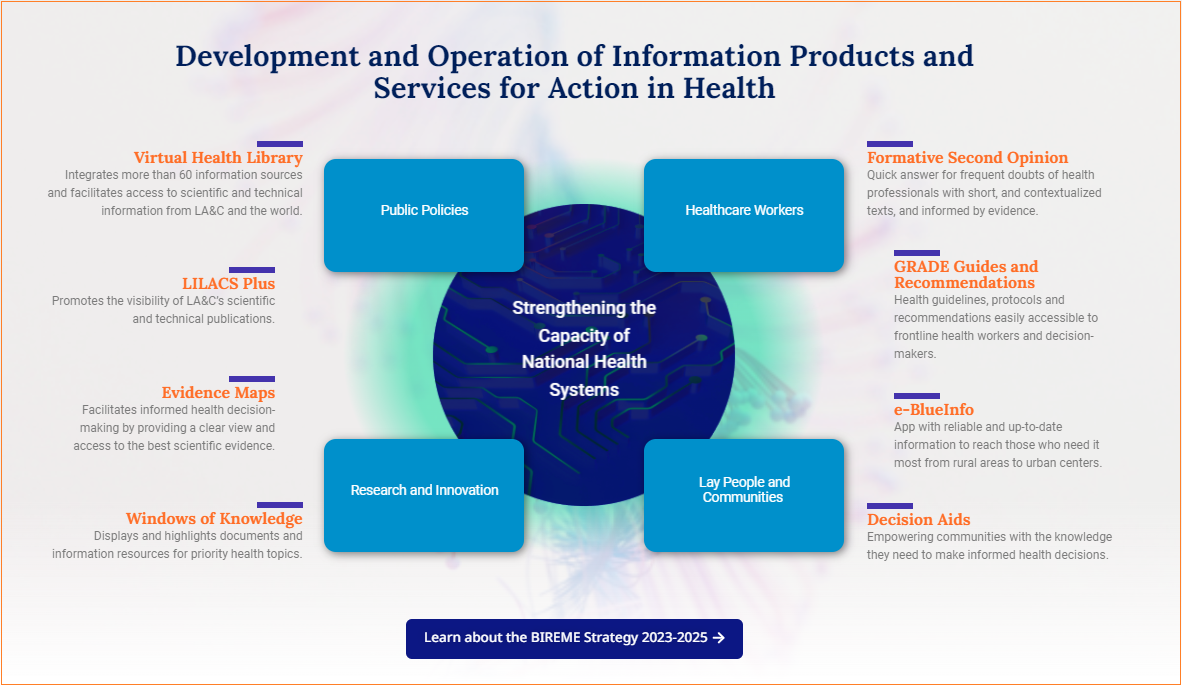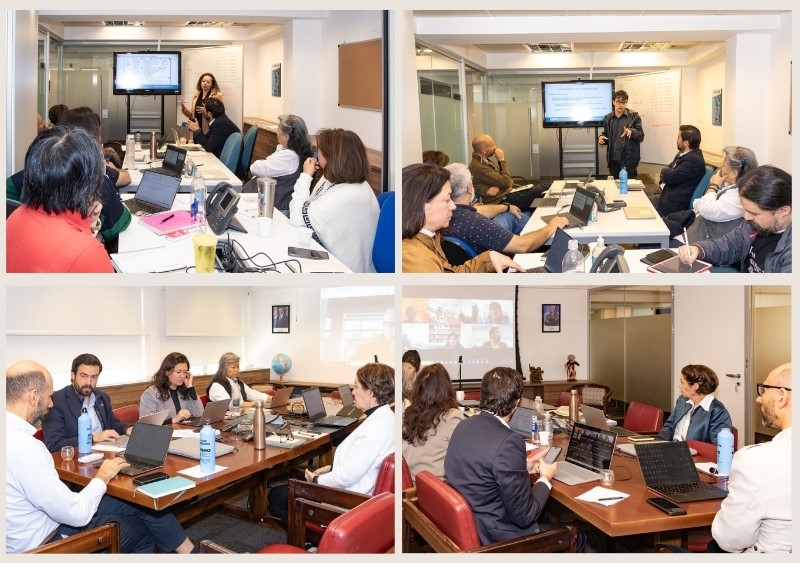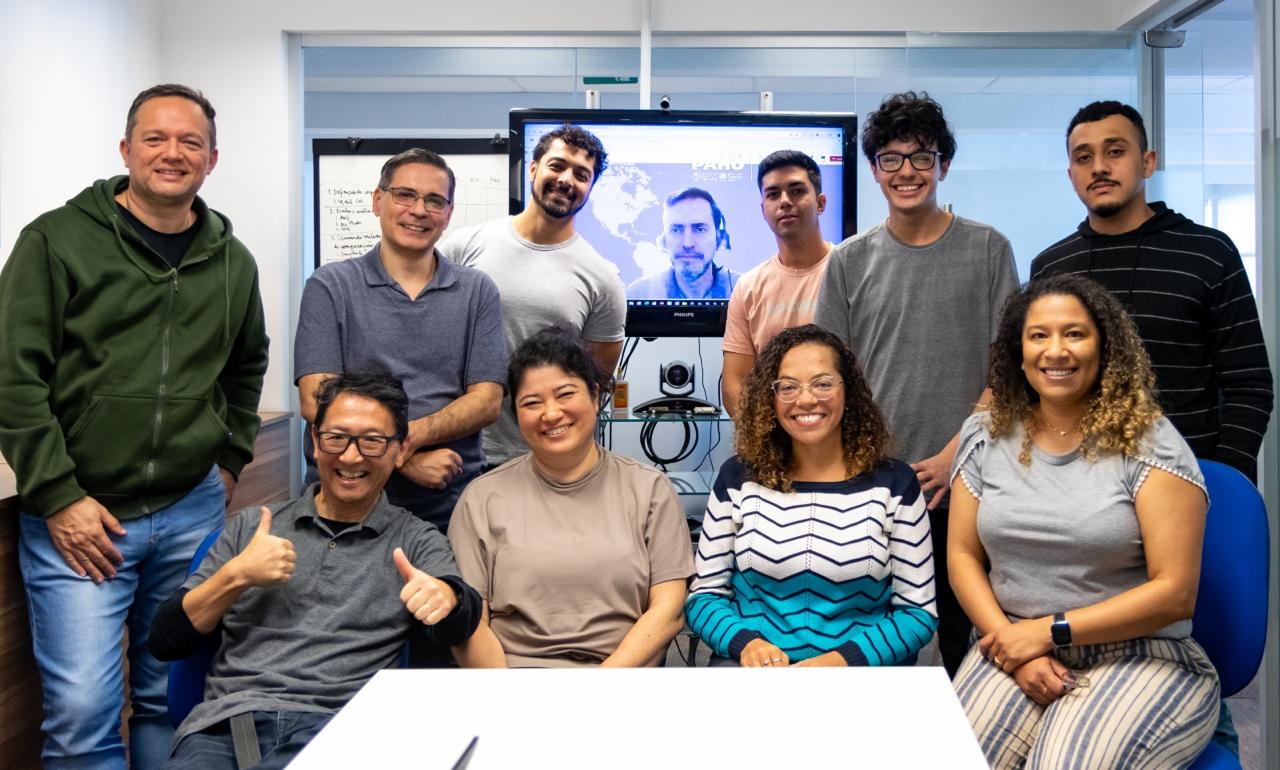
In order to improve its products and processes, BIREME has set itself targets for technological innovation, with a focus on delivering value to users. The strategy adopted prioritizes the implementation of agile methodologies, strengthening the organizational culture, encouraging the sharing of ideas and the constant search for innovative solutions that add practical and immediate value to the needs of those who use the Center’s services and products.
“As an important initial step towards integrating new technologies into the product development process, we organized several meetings with specialists in artificial intelligence, with the main focus on developing and implementing solutions,” highlighted Marcos Mori, Coordinator of Solutions Development and Emerging Technologies (DEV).
After analyzing a number of solutions and tools, it was decided to use ChatGPT Plus (subscription version) to support the development and documentation of products and projects. The resource will also support computer language translation, error correction and code optimization. “The tool is improving efficiency in the process. In addition, we are dedicated to curating our current products and developing new projects,” continued Marcos Mori. Some of the outstanding initiatives are described below.
Text generation and search interface with natural language
ChatGPT is being studied to assist in the creation of texts for the Second Opinion Formative Program (SOF) and for the Decision Aids project, with the aim of facilitating the writing, revision and generation of answers. According to BIREME’s development team, tests have already demonstrated its usefulness, but human review is still essential to guarantee the quality of technical and scientific content. The development and testing of natural language search functionality, which will seek to improve access to information, including conversational search, is also planned.
Automatic indexing of documents
BIREME’s DEV team is implementing Annif, an automatic indexing tool that uses Natural Language Processing (NLP) to improve information management. “It can be trained with controlled vocabularies, such as DeCS/MeSH, that ensures accurate suggestions and supports several languages. Currently, the tool is being trained with documents from LILACS,” explains Coordinator Mori. The launch of DeCS Finder as a “semi-automatic indexing” solution is planned for this year.

Incorporation of LLMs into the VHL: super abstracts, similar DOCS and narrative summaries
Large Scale Language Models (LLMs) are being incorporated into the Virtual Health Library (VHL) to create super summaries, similar DOCS and narrative summaries. The super summaries, with two to three sentences, are generated from document titles and summaries, and will serve as the basis for future Similar DOCS and narrative summaries. These syntheses summarize information from articles, making it easier for users to access them. The aim is to reduce processing effort by generating clear content from the five most relevant articles in VHL searches.
ChatGPT specialized in LILACS and DeCS
ChatGPT Plus is being specialized to improve the analysis of answers on LILACS and DeCS, essential methodologies in scientific health literature. The aim is to create a list of frequently asked questions (FAQ) to support the VHL network and its users. The model has been trained with texts on these methodologies, and internal tests are being carried out to assess the quality of the answers. The solution is in the validation phase, with continuous adjustments for improvement.
Personalization of content in the VHL through a predictive model
The project aims to improve the “My VHL” functionality with advanced personalization, based on users’ preferences and usage history. The new predictive search will adapt results to search behavior and patterns, including geospatial analysis. The aim is to provide more efficient experience, allowing access to information of interest without active searches, as well as adapting results to the user’s regional needs, such as health professionals and researchers.
Recognizing the importance of incorporating new technologies, improving products and services and enhancing the user experience, BIREME has the support of a consultant specializing in artificial intelligence. In addition, there is institutional encouragement for professional improvement through specific courses. Marcos Mori points out: “This has allowed us to optimize our processes and promote continuous improvement in the quality of the services offered, guaranteeing innovation and efficiency in our operations.”
These advances establish an important step forward in the use of AI in BIREME’s products and information systems, and reinforce the institutional commitment of technical cooperation to offer faster and more effective responses to VHL users and to the health sciences information systems of the countries in the region.

Links of interest:
Artificial Intelligence: BIREME drives improvement in development – BIREME/PAHO/WHO Bulletin
BIREME Strategy 2023-2025: Towards 4.0 Information Products and Services